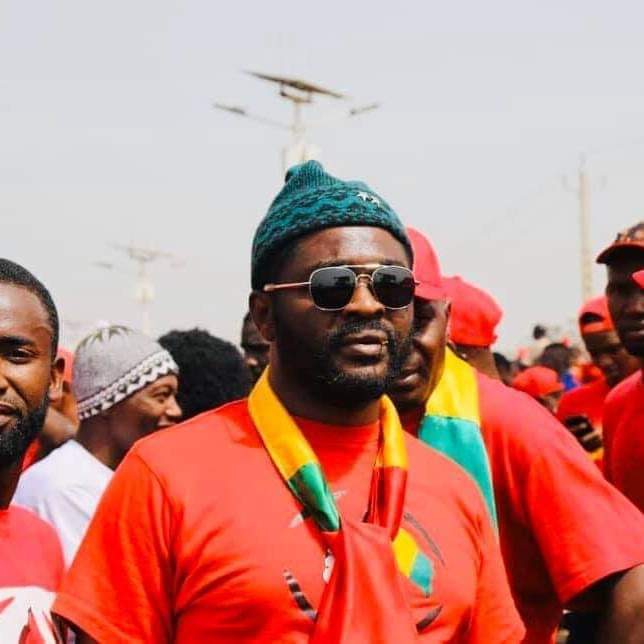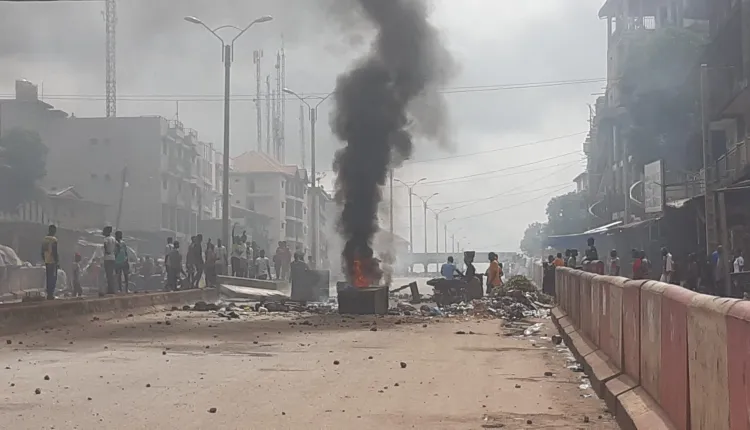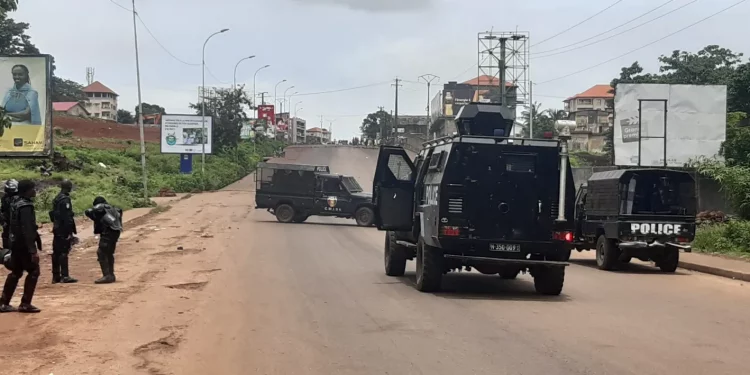There was an uneasy calm in Conakry on Saturday, following deadly protests in the Guinean capital on Thursday and Friday.
Reports indicate several deaths and injuries, after security forces clashed with protesters.
The demonstration was organized by the National Front for the Defence of the Constitution (FNDC), a coalition of civil society and political parties, which is seeking to force the military-led transition administration to rapidly transfer power to democratic rule.
Sources on the ground described the situation across Conakry as a “war zone,” citing scenes of clashes between armed security forces and protesters, amid the sound of gun fire.
Local media cite FNDC officials claiming at least five people had died and several others sustaining injuries from bullets fired by security forces.
An unknown number of people were reportedly detained by the security forces, according to reports.
The police in a statement said 12 of its members were injured.
Several properties, include a police vehicle, were reportedly destroyed.

Dozens of protesters were also reportedly arrested in the course of the two days unrest.
The office of the General Prosecutor in Conakry has ordered for the prosecution of all those detained, including the protest leaders.
The FNDC is challenging the junta of Col. Mamady Doumbouya over what they say is its failure to show any sign of willingness to rapidly transfer power to democratic rule.
Doumboiuya came to power on September 5, 2021, after ousting former President Alpha Conde.
The junta has promised to hold elections and hand over power. But its proposal for a three-year transition timetable has been rejected by the activists and opposition political parties, as well as the West African bloc – ECOWAS.
ECOWAS leaders, in the last heads of state summit in the Ghanaian capital Accra on July 3rd, gave the junta up to the end of this month to produce an “acceptable” timetable or face hash economic sanctions.
The country is already suspended from the bloc’s organs.
Reports say the military junta has been rounding up organizers of the weekend protest.
Early on Saturday, FNDC announced that its leader, Oumar Silla, commonly known as Fonike Mangue, was “kidnapped” and taken to an unknown location. The group said in a statement that Mr Silla was taken from his private residence at exactly 1:40am by a group of “heavily armed” soldiers and gendarme.
“Oumar Silla was driven to a destination unknown to his family, FNDC colleagues and lawyers,” the statement says.
“The FNDC strongly condemns the kidnapping of its coordinator in violation of its procedures and will hold the CNRD [Junta] responsible for everything that happen to Mr Oumar Silla,” it adds.
Late on Saturday, another member of the group, Ibrahima Diallo, its head of operation, was arrested. Diallo’s wife announced his arrest via social media. He was reportedly taken away from his home by four security officers.
Late Saturday evening Saikou Yaya Barry, Executive Secretary of the opposition Union of Republican Forces (UFR) party, became the first politician to be arrested. He was reportedly taken away from his home by armed security officers to an unknown destination.
Silla was one of three of the group’s leaders detained days before this weekend’s protest and charged for insulting the transition administration. The men who also included a popular rapper were arrested during a press conference.
They later appeared in court, before they were released on bail.

Thursday’s protest coincided with the arrival of an ECOWAS delegation headed by its chairman, Umaro Sissoco Embalo, the President of Guinea Bissau.
Mr Embalo is accompanied by the newly appointed ECOWAS Commission President, Gambian diplomat, Dr Omar Turay.
The delegation has been holding meetings with the transition leadership and other players in the political scene, as part of efforts to find an agreeable timetable.
FNDC leaders were among those the ECOWAS delegation met with on Friday. In a separate statement, the pressure group said it agreed to a request by the bloc to suspend its protest for one week.
FNDC was behind anti-government protests that challenged Conde’s third term bid, which led to the deaths of many people, according to rights campaigners.
Part of the group’s demand from the CNRD Junta is to bring to book all those suspected of involvement in the killing of innocent civilians during the struggling against Conde.
They also want the military-led transition government to involve the civil society and political parties in the process of the transition.
FNDC says it intends to stage a series of protests if that’s what it takes for it to achieve its goal.
But the junta, in May, slammed a ban on public protest.
Leading opposition politician, Sellou Dallien Diallo, has condemned the arrest of the activists,
Mr Diallo, a former Prime Minister and presidential hopeful, said the junta was displaying an aggravated form of the mode of operation of the regime it overthrew because of dictatorial tendencies.






















